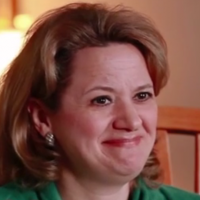Parents
Caring for children with disabilities consumes your life.
We know that. And we want you to realize, through these stories, that you are not alone.
Featured Parent

This is Christine
Christine Walker is a dedicated advocate for children’s mental health and works tirelessly to educate policymakers to enhance the lives of families raising children with hidden disabilities. Christine’s oldest son lives with Asperger’s syndrome, ADHD, and a mood disorder.
Featured Articles for Parents

Choosing Out-of-Home Care for Your Child with Prader-Willi Syndrome
It's only normal for parents to want to be everything to their children. That's a tall order for any parent, but when your child has Prader Willi Syndrome, "everything" is more than any one person can be. Read about how one parent learned that letting experts help manage his son's disorder give him the chance to focus on being a father.

Adopting a Child of Trauma: Gaining Perspective on What Your Child's Behavior and Rage Are Telling You
As the parent of a child with Reactive Attachment Disorder, Lori Hetzel knows that her daughter's intense emotions are trying to communicate what she is unable to express with words. Nadya's extreme behavior is the only tool she has for expressing her fundamental need for security. Read about Lori's efforts to maintain perspective during crisis, and then consider three perspectives to help you as you approach your own child's extreme behavior.

Feeling Guilty When Raising a Child With Special Needs
Parents are often their own toughest critics. When the idyllic picture of what we thought our family would look like is a stark contrast to what the reality is, we add on even more stress by feeling guilty about what we did or didn't do in a a sea of very complex situations. For parents of special needs children, these instances are magnified, but they are recurring thoughts of every parent, nearly every day. Break the cycle of guilt for your sake and for the sake of your child.
Latest Articles for Parents
Loading...
Swing Low, Swing High: Parents Moving into Emotional Scaling for their Daughter
Written By: Nancy Yeang | Resource Creation By: Bridget Morton | Design By: Christy Bui, Sunny DiMartino
Parents of children with Reactive Attachment Disorder (RAD) and other trauma and stressor-related disorders try many techniques to mitigate the problems with emotion regulation and aggressive behavior. Emotional scaling can help children with RAD to better understand their emotional experience in order to regulate their emotions and behavior before experiencing outbursts of agitation and aggression.
Through His Eyes: Natural and Logical Consequences at Home
Written By: Nancy Yeang | Resource Creation By: Bridget Morton | Design By: Sunny DiMartino
A father struggles with having his son, who has behavioral issues, understand the consequences of his actions. After a visit with a behavioral counselor, he learns about behavioral strategies, and also finds a window into his son’s world that allows him to better see and understand his perspective.
Collaborative Problem Solving: Parents and Children Working Together to Solve Everyday Problems in the Home
Written By: Rebecca Thomas | Resource Creation By: Bridget Morton | Design By: Sunny DiMartino
Parents may often grow frustrated when their child with an Autism Spectrum Disorder becomes increasingly defiant over a necessary daily task, such as teeth brushing, bathing, or getting out of bed in the morning. Before frustration reaches a boiling point, or resorting to punishment, parents can work together with their child to understand and express each other’s concerns and come up with a solution that works for everyone involved.
Prader-Willi Syndrome: It’s Not Just the Number on the Scale
Written By: Alison Hennessee | Resource Creation By: Bridget Morton | Design By: Sunny DiMartino
Parents of children with Prader Willi syndrome begin preparing for the food-related challenges associated with this disorder from day one. With a wealth of PWS literature on how to handle the constant food-seeking behaviors, parents learn to lock cupboards, manage meals, and limit pocket money. But other, less-discussed characteristics of PWS, particularly extreme and sometimes violent behavioral problems, can be just as difficult to handle. In this article, you’ll read about the challenges that Natalie faces as a result of her son Jason’s meltdowns and learn some strategies for handling these episodes.
My Child with High-Functioning Autism Doesn’t Look Like Yours
Written By: Pamela DeLoatch | Resource Creation By: Bridget Morton | Design By: Analee G. Paz, Sunny DiMartino
Why does one child with Autism behave differently from another child with the same disability? While the neurospectrum disorder can cause social, communication and behavioral changes, from mild to severe, the impact of Autism is magnified when a second (or more) disability is involved. Read on to find out how parents can understand and help a child challenged by Autism, in addition to other chronic disorders.
Fostering Emotional Connections with Your Child Who Has Autism
Written By: Amanda Ronan | Resource Creation By: Bridget Morton | Design By: Christy Bui, Nathan Lueth, Sunny DiMartino
As the parent of a child with ASD, you experience the love and connection with your child in ways that are different, but are no less important and valuable. By learning techniques that suit your child’s needs, you are helping them to reach their full potential and giving yourself the opportunity to experience that emotional connection.
